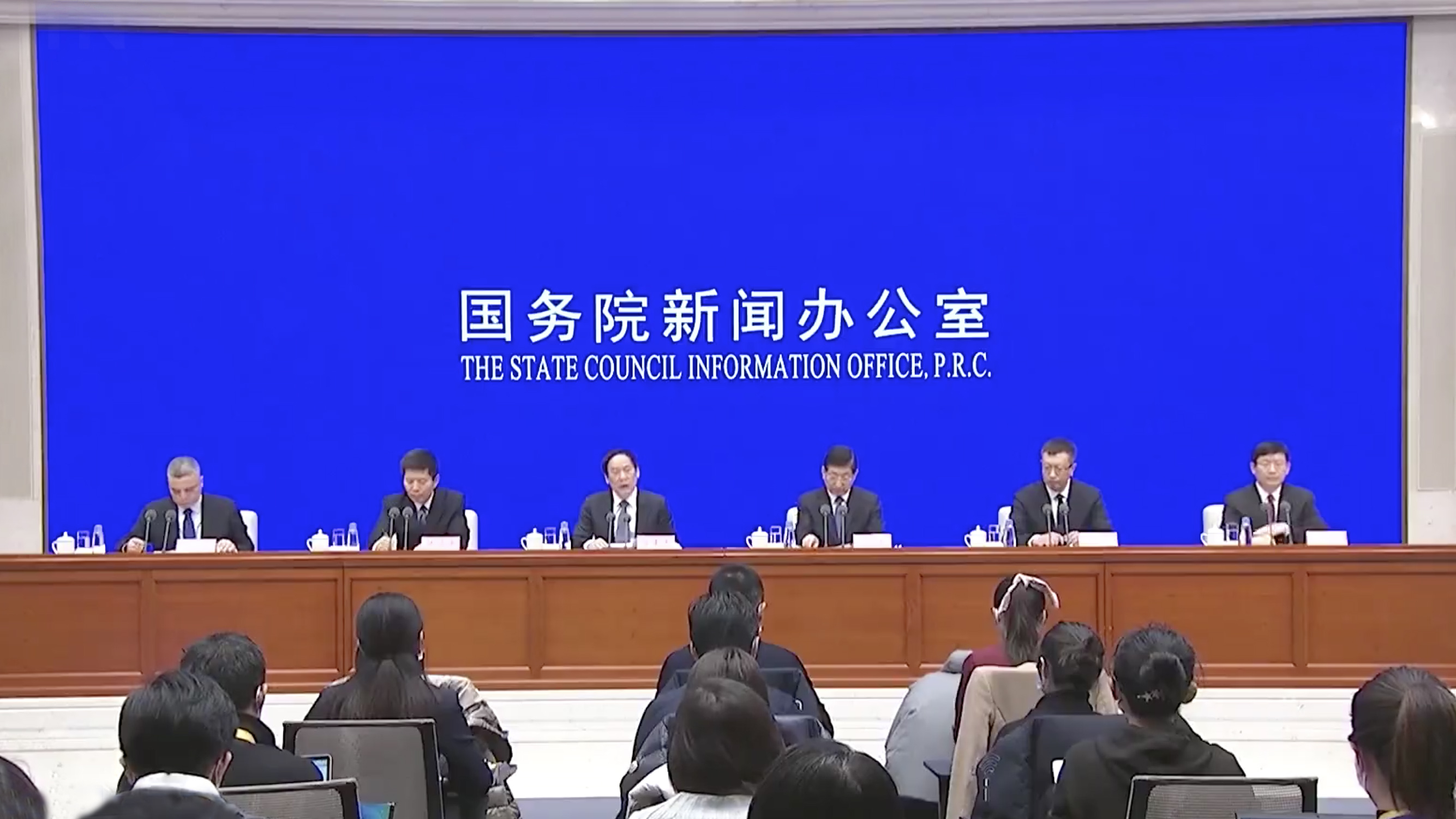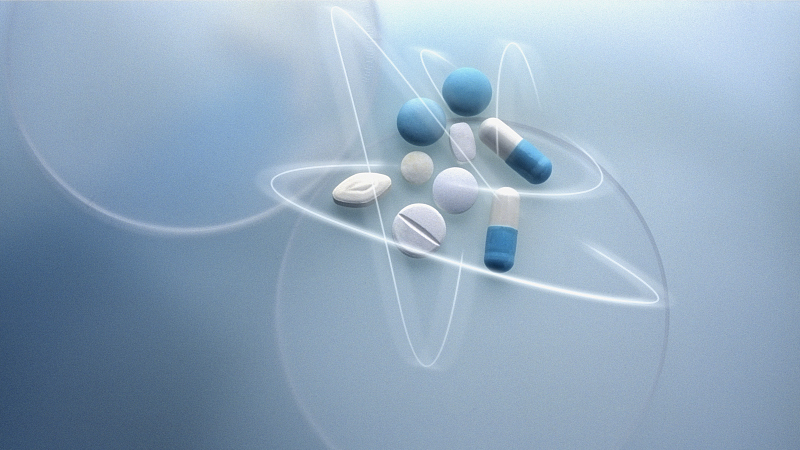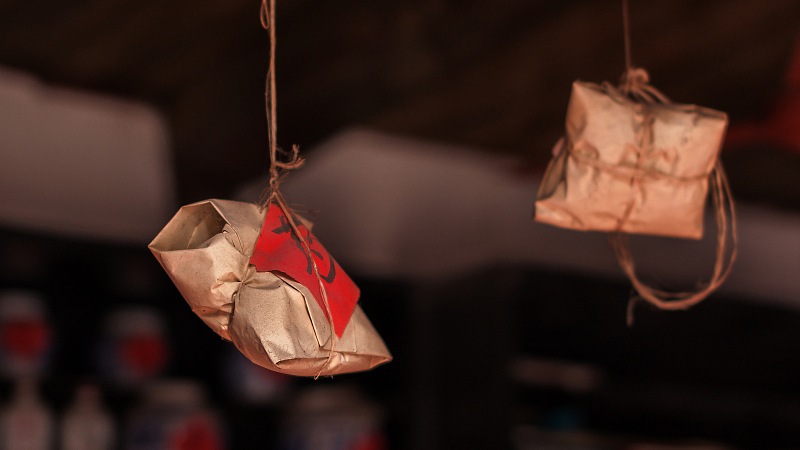00:23

The coronavirus vaccine is expected to be submitted for clinical trials as early as late April, Xu Nanping, China's vice minister of science and technology, said at a press conference on Friday.
Zeng Yixin, vice minister of National Health Commission, said research and development of a vaccine is a time-consuming process.
"There is a certain procedure to follow," he said. "For example, we need to pick out the suitable strain of the virus, not all strains can be used for making vaccine."
"The novel coronavirus is new type of virus, we don't know much about it. Thus there are some uncertain factors in the development of vaccine," Zeng told the press.
Zeng introduced five technical routes for vaccine development – inactivated vaccine, genetic engineering recombinant subunit vaccine, adenovirus vector vaccine, nucleic acid vaccine, and inactivated influenza vaccine.
Some of the vaccine projects have entered the animal experiment stage. Zeng sees the process of vaccine research and development like the construction of a building.
"We have already laid the foundation, and the building has risen up from the ground," he said, adding that some vaccines could enter clinical trial as early as in April or May.
For safe, effective, available drugs

Three drugs have been included in the latest diagnosis and treatment plan of novel coronavirus. /VCG
Three drugs have been included in the latest diagnosis and treatment plan of novel coronavirus. /VCG
Though a pressing task, the research and development of drugs always follow the principle of "security, efficacy, availability," said Xu.
Three drugs have been included in the latest diagnosis and treatment plan.
Traditional Chinese medicine (TCM) has been included in the plan since the third version. More than 60,000 cases, accounting for over 85 percent, have been diagnosed and treated with TCM. In general, the current TCM treatment is effective, and the integrated treatment of TCM and Western medicine has shown obvious effectiveness, added Xu.
Another drug added into the plan is the marketed Chloroquine Phosphate, which has been tested in 135 cases in Beijing and Guangdong Province after a five-stage research.
Among the 135 cases, none of the 130 mild and ordinary ones have deteriorated to severe condition. Four of the five severe cases have been discharged from hospital and one has been downgraded to an ordinary case.
"The result has shown an overall good effect," said Xu. "The drug has been drawn into the sixth diagnosis and treatment plan. Further results are expected to be summarized on the basis of large-scale application."
Convalescent plasma therapy, which was added in the fifth plan, has been further developed in the sixth that it is targeted at patients with rapid disease progression, or in severe and critical condition.
Three drugs including Fapilavir, stem-cell-derived treatment and Remdesivir have entered the stage of clinical test.
Eighty controlled trials have been conducted in Shenzhen with Fapilavir, and has shown promise. Experts recommend expanding the trial to see further results.
Four critical patients who received stem-cell-derived treatment have been discharged from hospital. Further clinical tests will be conducted.
In-vitro test of Remdesivir has shown that the drug is effective in inhibiting the novel coronavirus. Ten hospitals in Wuhan have participated in the clinical test with over 200 severe and critical cases and over 30 mild and ordinary cases.
"We'll work with Gilead, the developer, to find a right way to deliver the drug if it works well," said Xu.
From the current clinical application, a batch of safe and effective chemical medicine and TCM has been included in the medication plan of clinicians at the front line, including marketed antiviral chemicals, Chinese patent medicine, and widely-used TCM preparations by medical institutions, said Chen Shifei, deputy head of the National Medical Products Administration. Over 80 TCM preparations have been applied in the diagnosis and treatment at the front line, and achieved good results.
Two-thirds patients in Hubei have TCM treatment

Traditional Chinese medicine. /VCG
Traditional Chinese medicine. /VCG
TCM has played an active role in preventing and controlling the outbreak, said Zeng. Nearly 3,200 medics have been sent to Hubei from the National Administration of TCM and over 630 TCM hospitals.
"Over two-thirds of the patients have been treated with TCM in Hubei," said Zeng.
Zeng also emphasized the significance of a combination of TCM and Western medicine in treatment.
"TCM and Western medicine can complement each other with mutual promotion, and jointly safeguard and improve people's health, which has become an important feature and advantage in China's medicine and health undertaking," said Zeng, adding that their integration in the epidemic prevention and control should be strengthened and implemented.
No transmission through skin
As for the ways of viral transmission, Zhou Qi, academician of Chinese Academy of Sciences, said the novel coronavirus cannot be transmitted through the skin.
"The virus mainly invades our body from mucous membranes, such as mouth, nose and eyes… So it's important to protect these parts," he said, adding that wearing masks properly could cut off the virus from entering one's body.
Over 100 recovered patients donate plasma
The use of plasma of cured patients in treating patients of critical condition has been proven effective. Xu called on recovered patients to donate plasma for saving more patients.
"Over 100 recovered patients have donated their plasma as of yesterday, which we can use to prepare about 240 shares of therapeutic plasma," Xu said, adding that it means more than 200 patients in critical condition can be treated.
(CGTN's Li Qian also contributed to this story.)